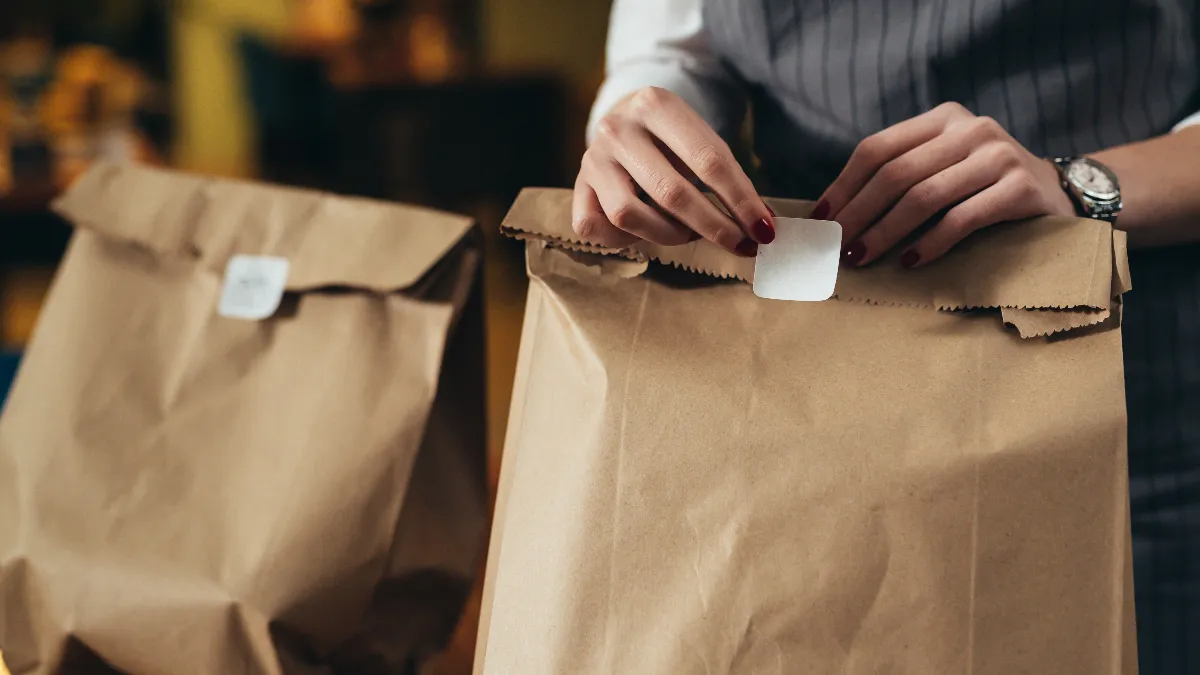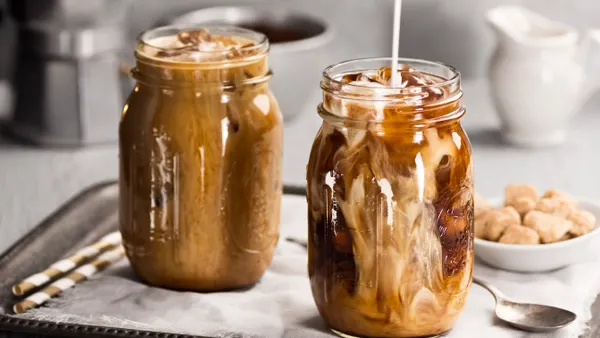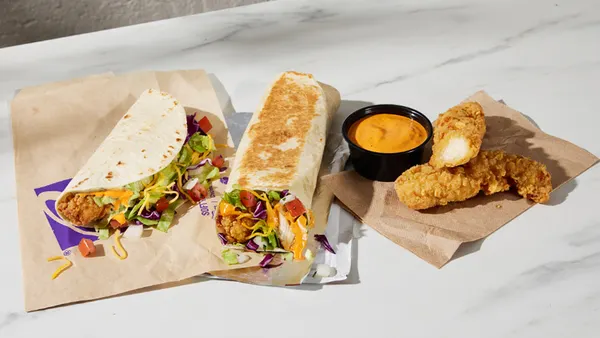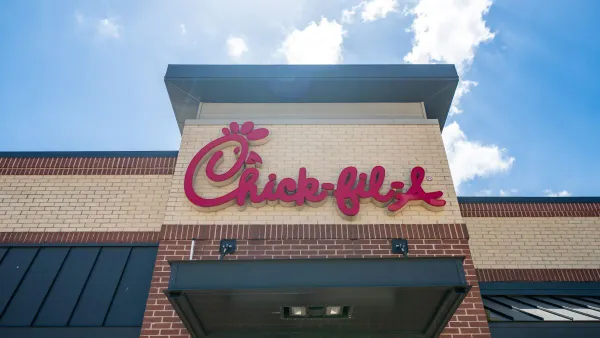Dive Brief:
- Alcohol to-go has become a key restaurant offering in the wake of the pandemic, when several major markets allowed such service for the first time, according to a National Restaurant Association report. Roughly 90% of operators that offer alcoholic beverages with off-premise orders say they will likely continue to do so if local laws allow.
- Restaurants across segments are much more likely to sell alcohol for takeout orders than for delivery orders fulfilled by third-party partners or staff, per the report.
- A gap between diner interest in off-premise alcohol and actual ordering behavior suggests to-go alcohol sales could grow further. Sixty-one percent of adults aged 21 and older want more alcoholic beverage options when ordering takeout or delivery, but only 24% added booze to a takeout or delivery order in the past six months.
Dive Insight:
Targeted marketing could help solve disconnect between prioritization of alcohol to-go options and actual spending. As the NRA report suggests “many consumers don’t even know it’s an option to include alcohol beverages with delivery or takeout order[s].” Such marketing efforts could help draw sales from younger diners, as 62% of millennials and 52% of Gen Z diners report they would be more likely to select an eatery for takeout if they could add alcoholic drinks to their order.
An emphasis on a beverage platform’s variety, for example, may also help entice young diners who appreciate an array of menu choices. Sixty-six percent of millennial and 50% of Gen Z adult delivery customers said a restaurant’s alcohol offerings could sway them to pick one restaurant over another, similar option.
Prioritization of alcohol held steady across camps of preferred beverages, as well — wine drinkers (79%), beer drinkers (77%) and cocktail drinkers (74%) were more likely to report that they would select a business based on whether they could add alcohol to their delivery order. Wine, beer and cocktail enthusiasts are interested in curated choices, as well, with 63% of beer drinkers and 64% of wine drinkers saying they would join a club that offered drinks curated by a restaurant’s staff for off-premise consumption.
Twenty states and Washington, D.C., have made cocktails to-go allowance permanent, per the study, and 10 states and the District have made wine by the glass permanently legal to sell as an off-premise menu item. The market has responded accordingly over the past few years. In 2021, DoorDash expanded its alcohol delivery service to 20 states and Uber purchased alcohol delivery platform Drizly for $1.1 billion. Last year, DoorDash strengthened its compliance by debuting two-step ID verification for alcohol delivery customers. Such legislation and concurrent market moves could help restaurants boost sales and speed the industry’s post-pandemic recovery.














